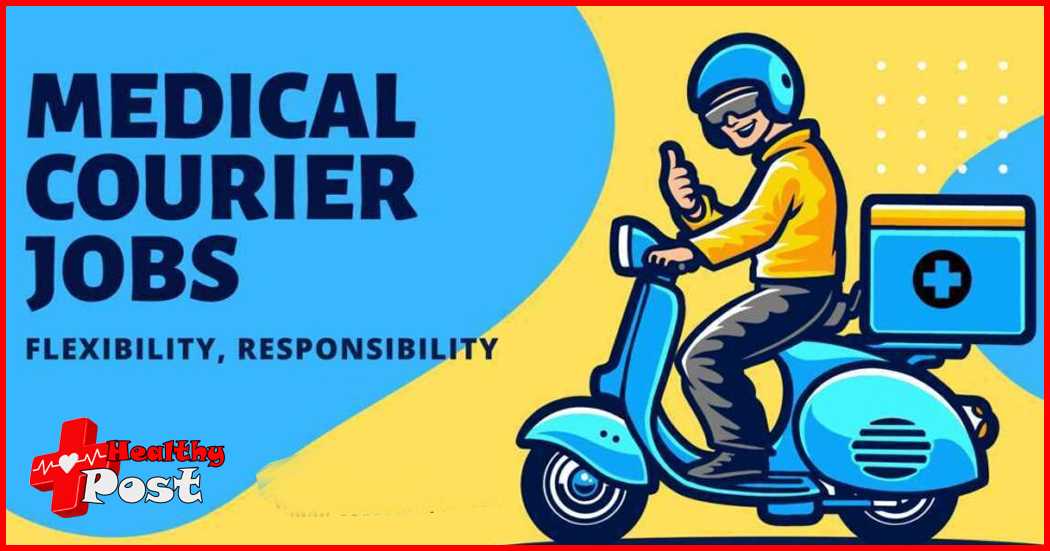
Medical Courier Jobs: Delivering Health, One Route at a Time
In the fast-paced world of healthcare, where timely delivery of medical supplies and specimens can mean the difference between life and death, medical couriers play a crucial role. These unsung heroes navigate busy streets, hospitals, and laboratories to ensure that critical items reach their destinations promptly. In this article, we delve into the world of Medical Courier Jobs, exploring their responsibilities, qualifications, and the impact they have on patient care.
1. The Vital Role of Medical Couriers

What Do They Do?
Medical couriers are responsible for transporting a wide range of items, including:
- Specimens: Blood samples, tissue biopsies, and other diagnostic specimens.
- Pharmaceuticals: Medications, vaccines, and other essential drugs.
- Medical Equipment: From portable X-ray machines to ventilators.
- Documents: Medical records, test results, and paperwork.
Why Are They Essential?
- Speed Matters: Medical couriers ensure that time-sensitive specimens and medications reach their destinations swiftly. This efficiency is critical for accurate diagnoses and timely treatments.
- Patient Safety: Proper handling and transportation of specimens prevent contamination and ensure accurate test results.
- Supply Chain Integrity: Couriers maintain the integrity of the medical supply chain, preventing delays or disruptions.
2. Qualifications and Skills
Education and Training
- High School Diploma: Most medical courier positions require a high school diploma or equivalent.
- Driver’s License: A valid driver’s license is essential.
- Medical Knowledge: While not mandatory, familiarity with medical terminology and procedures is advantageous.
Skills
- Attention to Detail: Couriers must accurately label and track specimens.
- Time Management: Efficient route planning is crucial.
- Customer Service: Interacting with healthcare professionals and patients requires excellent communication skills.
3. A Day in the Life of a Medical Courier
Morning Prep
- Vehicle Check: Inspecting the delivery vehicle for safety and cleanliness.
- Route Planning: Mapping out the day’s deliveries.
On the Road
- Pickups: Collecting specimens from clinics, hospitals, and laboratories.
- Deliveries: Ensuring timely drop-offs at designated locations.
- Adaptability: Handling unexpected delays or changes.
Safety First
- Proper Handling: Following safety protocols for hazardous materials.
- Temperature Control: Maintaining the integrity of temperature-sensitive specimens.
4. Job Opportunities
Types of Medical Courier Jobs
- Independent Contractors: Own their vehicles and manage their routes.
- Company Employees: Work for courier services or healthcare facilities.
Where to Find Jobs
- Online Job Portals: Websites like Indeed and Glassdoor list medical courier positions.
- Healthcare Facilities: Hospitals, clinics, and laboratories often hire in-house couriers.
5. Challenges and Rewards
Challenges
- Traffic Jams: Navigating rush-hour traffic.
- Weather Conditions: Rain, snow, or scorching heat—couriers face it all.
- Accuracy: Ensuring the right specimen reaches the right place.
Rewards
- Impact: Knowing that their work directly affects patient care.
- Community Connection: Building relationships with healthcare professionals.
- Job Stability: The demand for medical couriers remains steady.

Medical Courier Jobs: Salary and Benefits
The Medical courier jobs play a vital role in the healthcare industry, ensuring the safe and timely delivery of medical supplies, lab samples, medications, and equipment. These professionals are responsible for transporting sensitive materials, often under strict deadlines, making their role both demanding and rewarding.
In terms of salary, medical couriers can expect to earn an average of 15to15to25 per hour in the United States, depending on experience, location, and employer. Entry-level positions typically start around 30,000annually,whileexperiencedcouriersorthoseinhigh−demandareascanearnupwardsof30,000annually,whileexperiencedcouriersorthoseinhigh−demandareascanearnupwardsof45,000 per year. Some companies also offer overtime pay, bonuses, or incentives for meeting delivery targets.
Beyond salary, many medical courier jobs come with attractive benefits packages. These may include health insurance, retirement plans, paid time off, and mileage reimbursement for using personal vehicles. Some employers also provide company vehicles, uniforms, and training programs to ensure compliance with safety and regulatory standards.
For those seeking flexible work schedules, medical courier jobs often offer part-time, full-time, or on-call options, making them ideal for individuals balancing other commitments. With competitive pay and benefits, this career path is an excellent choice for reliable, detail-oriented professionals looking to make a difference in the healthcare sector.
Conclusion
Medical courier jobs may not always make headlines, but their impact reverberates through hospitals, laboratories, and clinics. These dedicated professionals keep the wheels of healthcare turning, ensuring that vital supplies reach those who need them most. So, the next time you see a courier rushing through the hospital corridors, remember—they’re not just delivering packages; they’re delivering health and hope.

One thought on “Medical Courier Jobs: Delivering Health, One Route at a Time”